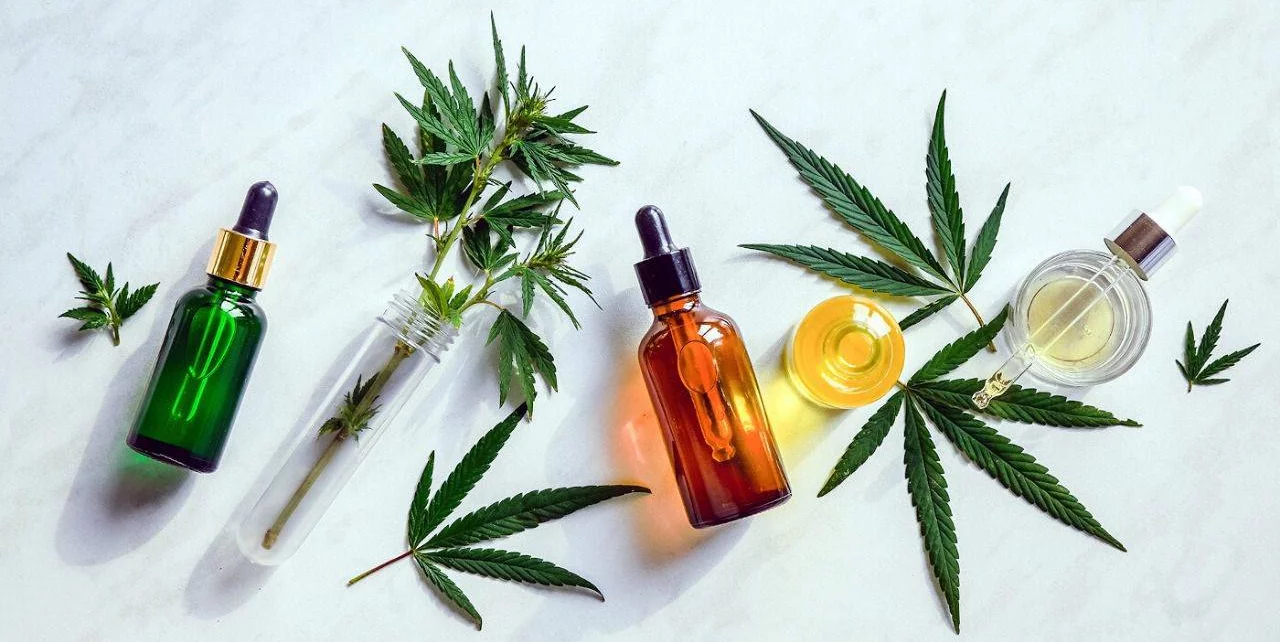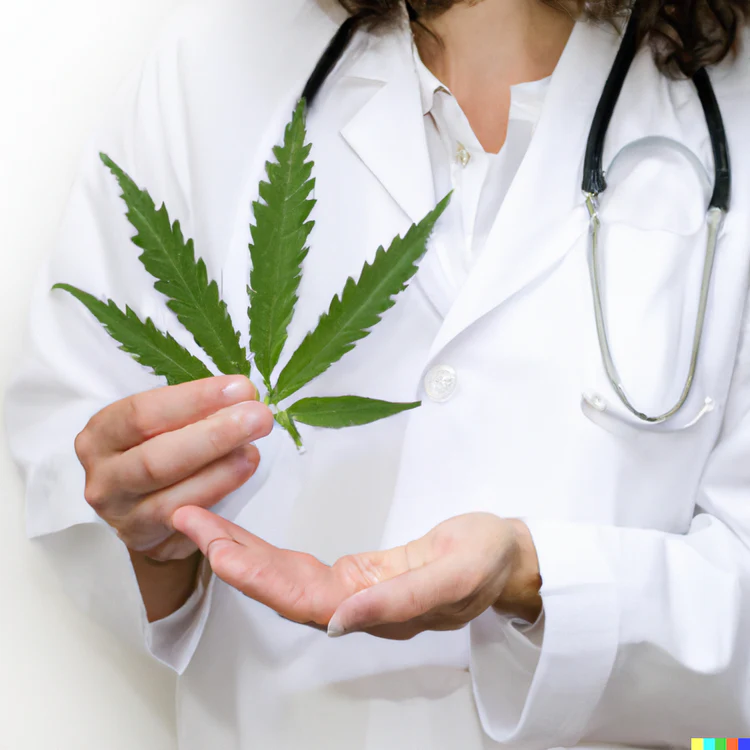The Healing Potential Of CBD And Use For Insurances
Cannabidiol, or CBD, is a compound found in the cannabis plant. Unlike tetrahydrocannabinol (THC), CBD does not produce a psychoactive effect and is not associated with the "high" commonly associated with marijuana use. Instead, CBD is believed to have potential therapeutic benefits, including pain relief, anxiety reduction, and anti-inflammatory properties. In this article we discuss about the healing potential of CBD.
Pain Relief
CBD has been shown to have potential as a pain reliever. In a study published in the European Journal of Pain, researchers found that topical CBD reduced pain and inflammation in rats with arthritis. In another study, researchers found that CBD reduced pain and improved sleep in people with chronic pain conditions such as multiple sclerosis and fibromyalgia.
Anxiety Reduction
CBD may also have potential as an anti-anxiety agent. In a study published in the Journal of Psychopharmacology, researchers found that CBD reduced anxiety in people with social anxiety disorder. Another study found that CBD reduced anxiety and improved sleep in people with post-traumatic stress disorder (PTSD).
Anti-Inflammatory Properties
CBD has also been found to have anti-inflammatory properties, which may make it useful in treating conditions such as arthritis and other autoimmune disorders. In a study published in the Journal of Clinical Investigation, researchers found that CBD reduced inflammation in mice with arthritis.
Healing Potential Of CBD
CBD has also been found to have potential as a treatment for a variety of other conditions, including epilepsy, Parkinson's disease, and acne. In a study published in the New England Journal of Medicine, researchers found that CBD reduced the frequency of seizures in children with Dravet syndrome, a rare form of epilepsy.
How CBD Works
CBD works by interacting with the body's endocannabinoid system (ECS), a complex network of receptors and signaling molecules that helps regulate many bodily functions, including pain perception, mood, and immune response. CBD interacts with two types of receptors in the ECS, CB1 and CB2, but unlike THC, it does not bind directly to these receptors. Instead, CBD is believed to modulate the activity of these receptors, as well as other signaling molecules, to produce its effects.
Types Of CBD Products
CBD is availablein many different forms, including oils, capsules, edibles, topical creams and balms, and vape liquids. Each type of product has its own advantages and disadvantages, depending on the individual's needs and preferences. For example, oils and capsules are easy to dose and provide long-lasting effects, while topical products are ideal for localized pain relief.
Potential Side Effects
While CBD is generally considered safe and well-tolerated, it can cause side effects in some people. Common side effects include fatigue, diarrhea, and changes in appetite and weight. CBD can also interact with certain medications, including blood thinners and antidepressants, so it is important to talk to a healthcare professional before using CBD if you are taking any prescription medications.
Legal Status Of CBD
The legal status of CBDvaries depending on where you live. In the United States, CBD derived from hemp (a type of cannabis plant with low levels of THC) is legal under federal law, but some states have their own restrictions. CBD derived from marijuana (a type of cannabis plant with higher levels of THC) is illegal under federal law, but some states have legalized marijuana for medical or recreational use.
CBD Use In Healing Insurance
The use of CBD in health insurance is still a topic of debate and controversy. While some insurance companies may cover CBD products for certain medical conditions, many do not. This is partly because CBD is not approved by the FDA as a medical treatment and is still classified as a Schedule I drug under federal law, along with marijuana.
However, as more research is conducted on the therapeutic potential of CBD, it is possible that health insurance companies may begin to cover it for certain conditions. For example, some insurance companies already cover FDA-approved CBD-based medications such as Epidiolex, which is used to treat certain types of epilepsy.
In addition, some employers are beginning to offer CBDas part of their wellness programs, providing employees with access to CBD products for stress relief, pain management, and other health concerns. While this is not the same as insurance coverage, it is a positive step towards incorporating CBD into mainstream healthcare.
The Future Of CBD In Healthcare
Despite the challenges and uncertainties surrounding the use of CBD in healthcare, many experts believe that it has the potential to revolutionize the way we approach pain management, mental health, and other chronic health conditions.
As research continues to uncover the therapeutic benefits of CBD, it is possible that it will become a more widely accepted and mainstream treatment option. In addition, as regulations evolve and more high-quality products become available, CBD may become more accessible and affordable for those who need it.
In the future, we may see more healthcare providers incorporating CBD into their treatment plans, either alone or in combination with other therapies. We may also see more research on the long-term effects of CBD use, as well as on the potential benefits of other compounds found in the cannabis plant.
Overall, while the use of CBD in healthcare is still in its early stages, it is an exciting and rapidly evolving field with enormous potential. With continued research, education, and collaboration between healthcare providers, researchers, and industry leaders, we may be able to unlock the full healing potential of CBD and other compounds found in the cannabis plant.
The Importance Of Quality And Safety
One of the most important considerations when using CBD for healing is the quality and safety of the products you are using. Because CBD is not regulated by the FDA, it is up to the consumer to ensure that the products they are using are high-quality and free from harmful contaminants.
When choosing CBD products, it is important to look for products that have been third-party tested for potency and purity. You should also look for products that use organic and sustainable farming practices, as well as those that have been extracted using safe and effective methods.
In addition, it is important to start with a low dose of CBD and gradually increase it as needed, under the guidance of a healthcare professional. This can help minimize the risk of side effects and ensure that you are getting the maximum benefit from your CBD use.
To read more about this important ruling and its implications for the future of CBD use in the world of healthcare, check out this articlefrom Hooksite.
People Also Ask
Does CBD Increase Healing?
There is some evidence to suggest that CBD may have potential healing properties, particularly when it comes to pain management, inflammation, and certain mental health conditions. Some studies have also suggested that CBD may have neuroprotective effects and could potentially help with the healing of brain injuries.
However, it is important to note that more research is needed to fully understand the potential healing properties of CBD and how it interacts with the body's natural systems.
Does CBD Have Any Medicinal Value?
CBD has been shown to have potential medicinal value for a variety of health conditions. FDA-approved CBD-based medications such as Epidiolex are used to treat certain types of epilepsy, and there is also evidence to suggest that CBD may be helpful for pain management, anxiety, depression, and other mental health conditions.
CBD is also being studied for its potential to help with a variety of other health concerns, including inflammation, acne, and even certain types of cancer.
How Does CBD Heal The Brain?
There is still much to learn about how CBD interacts with the brain and how it may promote healing. However, studies have suggested that CBD may have neuroprotective effects and could potentially help with the healing of brain injuries.
CBD has been shown to interact with the body's endocannabinoid system, which plays a role in regulating a variety of physiological processes, including pain, inflammation, and mood. It is thought that CBD's interactions with this system may be responsible for some of its potential neuroprotective effects.
Conclusion
CBD has the potential to be a valuable tool for healing, but more research is needed to fully understand its benefits and risks. If you are interested in using CBD for health and wellness, it is important to do your research, talk to a healthcare professional, and choose high-quality products from reputable manufacturers. With the right information and guidance, CBD can be a safe and effective addition to your healthcare regimen.

